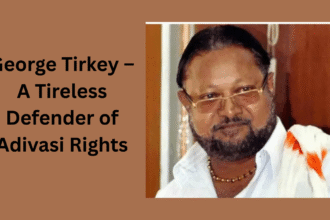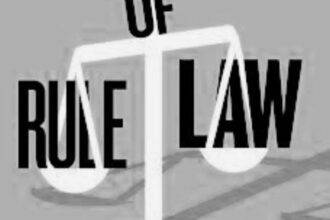In recent times we have been witnessing an increase in the petitions by the government seeking recall of the honorable Supreme Court’s orders. The practice of recalling judicial decisions is as old as the legal profession itself. History is replete with several such instances. We would like to use the lens of institutional change to examine the recall of some latest judicial decisions.
The famous book of Adam Smith, The Theory of Moral Sentiments (1759), positioned institutions as the necessary foundation for progress. It stressed that institutions with embedded past knowledge provide a platform for future development through the rule of law, property, and civil rights.
19th-century economists such as Thorsten Veblen saw institutions as the basic building blocks of development. As societies and economies became more complex, institutions were needed to solve increasingly complex collective action problems. Despite many differences, researchers accept institutions as rules, norms, and procedures that structure behavior: both social and economic. Institutions create public goods such as language, money, and the rule of law. Institutions evolve over the years and take time to change.
One such powerful institution is the courts of law. The judicial processes are becoming all pervasive, affecting every aspect of human life: professional and personal. Law and its various manifestations are well embedded in the social and economic life of a nation. In India, Supreme Court and the High Courts have played a very important role in protecting democratic principles and practices.
Former Chief Justice of India, PN Bhagwati, elaborated on the evolving power of the Supreme Court of India in one of his articles (The Judiciary in India: A Hunger and Thirst for Justice published in the NUJS Law Review- 2012). Justice Bhagwati observed that during the first couple of decades post-independence, the Supreme Court focused on promoting the values of constitutionalism, separation of powers, and checks and balances over different organs of the State. As the judiciary and the Indian political system matured, the Supreme Court firmly established the primacy of the Constitution through its articulation of the Basic Structure Doctrine. As per the Basic Structure Doctrine of the Indian Constitution, any amendment that tries to change the basic structure of the Constitution is invalid. This enabled the Supreme Court to control the use of excessive legislative power.
Often it is seen that the ruling political party uses the inherent power of the courts to control institutions: social, economic, and political. A strong judiciary may not allow such usurping of power. However, with a strong and single political party in power, it may remain a distant dream. People of India had witnessed such powers in action in the past and witnessing a different avatar of the same in the present days too. The increasing use of judicial reviews and recalls by the government is one such manifestation. During the last four months of this year, the Central government has already approached the Supreme Court in at least three cases seeking recall of the top court’s judgments and orders.
There are several recall petitions in the court, but one which has stirred passionate debates in both legal and political circles relates to the extension of the employment tenure of the incumbent Director of the Enforcement Directorate (ED). The current Director of the ED was appointed in November 2018. The tenure for the post was two years. Just as the tenure was about to end, it was extended for another year till November 2021 through the presidential order. When the order was challenged in the Supreme Court, a two-judge bench of the Supreme Court refused to intervene. However, the Court had said such extensions should only happen in ‘rare and exceptional circumstances and stressed that the tenure should not be extended any further.
Despite such clear order of restriction, the President invoked his powers under Article 123 of the Constitution and promulgated ordinances (which later took the form of amendments)in November 2021, which extended the two-year restraint on the term of the ED chief to five years. Accordingly, two more extensions were given in 2021 and 2022. So the current Director of the ED will continue in the office up to November 2023.
It is interesting to note that Article 123 allows the President to promulgate ordinances when the Parliament is not in session, provided the issue is urgent, and it requires immediate action. One is at a loss to understand how come the extension of the tenure of the incumbent Director of the ED is urgent and cannot wait for a decent debate in the parliament.
Several people with diverse political ideologies challenged such an extension before the Supreme Court as it is expected to affect the independence of investigating agencies like the CBI and the ED. In January 2023, the Solicitor General of India informed the court that the Central government has moved an application to recall the September 2021 direction on the tenure of the Director of the ED.
The saga of repeated extensions despite the order of the Supreme Court and then moving the court to recall the order has caused concern in the legal world. Are these actions of the government eroding the basic fabric of democratic institutions of the country? Should the people of India read the recall petitions by the government as a signal of the diminishing power of other institutions?
D V Ramana
Professor, XIMB
XIM University
9937022466
Comments
0 comments







